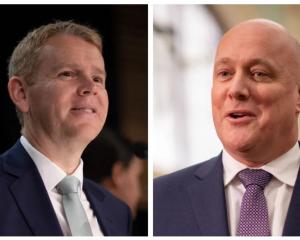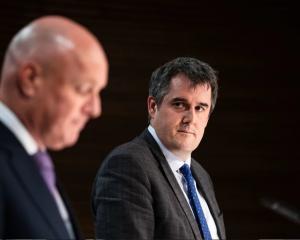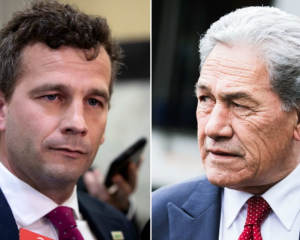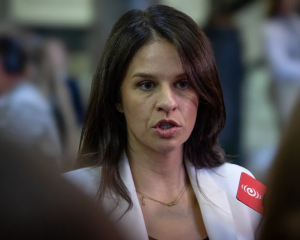

There were "a whole heap of other questions to be dealt with'', Labour leader Andrew Little said after Mr Barclay announced he would quit Parliament in September.
Mr Barclay, the MP for Clutha-Southland, had come under intense pressure in the past two days over recordings of a former staff member, Glenys Dickson, which were allegedly taken without her knowledge - a potentially illegal act.
Mr Little, New Zealand First leader Winston Peters and Green Party co-leader James Shaw challenged Mr English and Police Minister Paula Bennett on their knowledge of the case in the House yesterday afternoon.
Leader of the House Simon Bridges attempted to block some of the questions on the grounds that ministers did not have responsibility for Mr Barclay or for electorate issues, but was overruled by the Speaker.
Mr Little said Mr English had known about the recording 18 months ago but had never acknowledged this in media interviews and had stood aside while Mr Barclay denied its existence.
That was a "total failure of leadership'', he said.
Mr Peters went further, saying Mr English and former prime minister John Key had been complicit in hiding illegal activity.
Police closed the investigation last year without pressing any charges.
A spokesman said yesterday morning they were assessing the information which had come to light in the past few days "in relation to any impact on the findings of the original Todd Barclay inquiry''.
Mr Barclay refused to be interviewed by police during the investigation last year, after taking legal advice.
While Mr English told police about the recording, he did not know whether Mr Barclay was in the room when it was made - a crucial factor in whether Mr Barclay committed an illegal act.
Mr Little said there was now "ample'' information for the police to reopen their inquiry.
It was his understanding that police did not progress with an investigation last year because of doubts about whether a recording was intentional.
Mr English's statement to police appeared to indicate intent, he said.
"There is enough there to draw an inference that there was a level of deliberateness in the recording of conversations that Glenys Dickson was party to.''
Mr Peters also believed police should reopen the case.
MPs also raised concerns about an allegation in a Newsroom story that a National Party board member put pressure on Mrs Dickson to drop her complaint to police.
It has since been revealed the board member was Glenda Hughes, a PR consultant and former police officer.
Green Party leader James Shaw said the police needed to investigate the allegation - a possible obstruction of justice.
Some of Mr Barclay's National colleagues expressed sadness about his imminent departure.
Deputy Prime Minister Paula Bennett said it was "a really sad day'' and that Mr Barclay had "a big career ahead of him'' before his decision to quit.
Revenue Minister Judith Collins, one of Mr Barclay's supporters, also said it was a "sad day''.
She had advised Mr Barclay over the past few days, but would not say whether she told him to resign.











